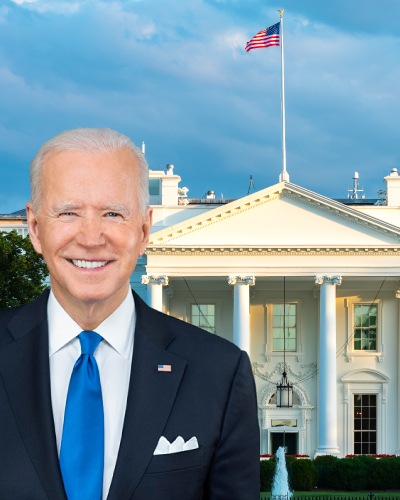
LCV Organizer Stories: From Climate Denial to Climate Activism
Nov 4, 2024
Choose to fight back: make a gift to LCV to show your commitment to our climate and democracy Give Now
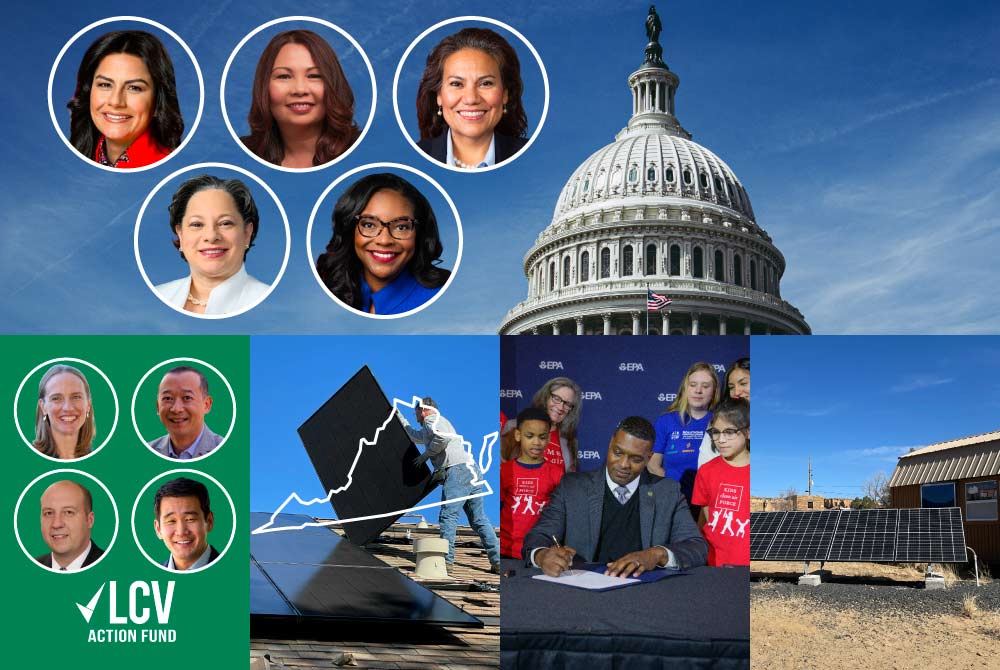
In honor of Women’s History Month, our top story celebrates women of color who are leading the charge to advance climate and democracy action in the U.S. House and Senate. This month, you’ll also find exciting news about groundbreaking candidates running in key Congressional districts, state-level clean energy progress, recently announced federal public health protections, and a zero-emissions electricity project benefiting communities that have been marginalized by historic underinvestment.
IN CASE YOU MISSED IT: LCV’s recent Capital Dinner included special guests Vice President Kamala Harris and Senator Cory Booker. Watch this short video to experience what happens when our movement comes together!
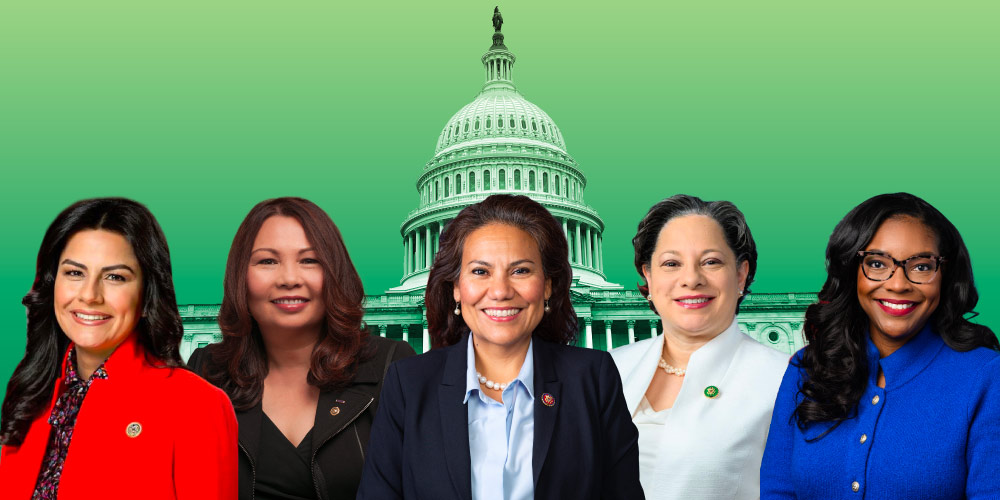
On International Women’s Day, Friday, March 8, LCV staff paused to celebrate and share reflections about the women in our lives who have inspired us. It was a powerful reminder of the many ways that people’s everyday decisions and actions shape the future for those who follow. In that spirit, and in honor of Women’s History Month, we’re highlighting the outstanding accomplishments of women climate and democracy champions serving in the U.S. House and Senate.
Here are just a few of the many inspiring examples of women trailblazers and some of their many accomplishments as outlined in the Champions of Color section of LCV’s recently released 2023 National Environmental Scorecard:
We invite you to read more about these women and other climate and democracy champions featured in the Scorecard. The Scorecard is a key component of LCV’s strategy to hold elected leaders accountable for their actions — and to uplift those working to advance climate action and strengthen our democracy. Watch this short video to learn more about LCV’s National Environmental Scorecard:
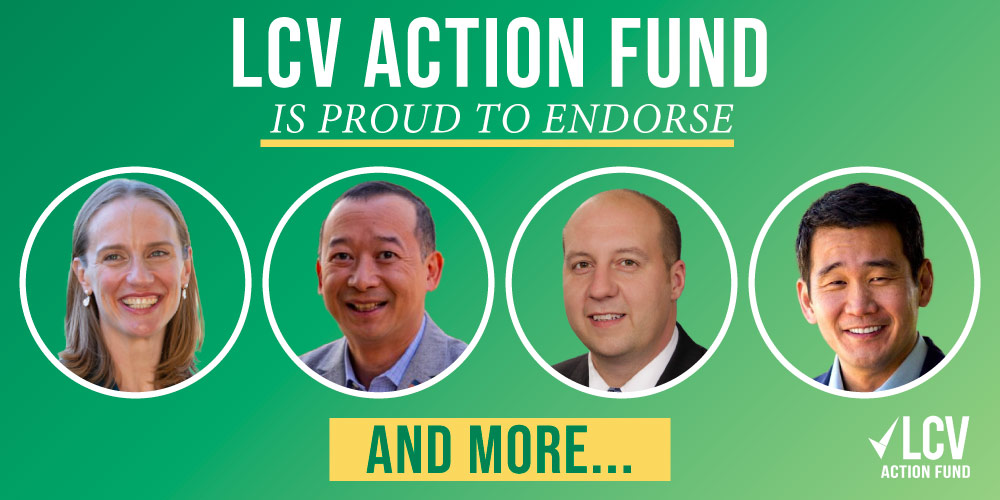
LCV Action Fund works to elect pro-environment candidates who are committed to addressing the climate crisis and strengthening our democracy. LCV Action Fund recently announced its latest round of 2024 U.S. House candidate endorsements, which include a mix of incumbents and first-time candidates:
In addition to endorsing U.S. House candidates, LCV Action Fund also recently endorsed Elissa Slotkin in Michigan’s U. S. Senate race. Representative Slotkin has championed the creation of good-paying clean energy jobs as a key component of building a strong middle class, and has supported environmental efforts throughout her time in Congress.
LCV Action Fund endorses candidates who will take meaningful climate and democracy action, and who are reflective and representative of diverse communities and identities across the country. LCV Action Fund evaluates candidates’ policy positions, endorsing those who will fight to protect our air, land, water, and communities — and who can win their races.
Since 1990, LCV Action Fund has successfully helped to elect and reelect 95 U.S. Senators and 482 members of the U.S. House of Representatives. In addition to winning races, these efforts elevate climate change and clean energy as critical issues in key elections. See who’s been endorsed by LCV Action Fund to date.
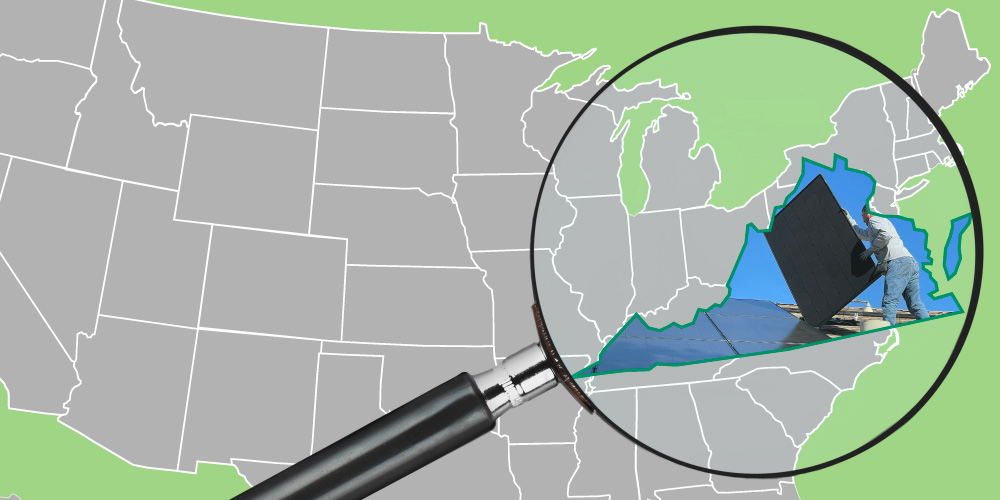
After winning a pro-environment majority in the Virginia General Assembly in November 2023, climate champions in the state House and Senate have passed critical clean energy legislation. This includes legislation that would open doors for additional federal clean energy investments in the South, set new energy efficiency targets, and expand community solar programs. The Virginia General Assembly also passed a state budget that includes language to rejoin the Regional Greenhouse Gas Initiative or RGGI. As the legislation moves to the governor’s desk, it’s important to take stock of and celebrate the power of electing the right people to office and the impact that has on clean energy progress.
Leading up to the state’s November 2023 elections, the Virginia League of Conservation Voters’ Political Action Committee ran a $2.2 million electoral program — the largest in the organization’s history for legislative races — to help elect environmental champions in key swing districts. As a result, climate champions held the state Senate and flipped the House of Delegates, setting the stage for the pro-climate legislation that followed.
Recently passed legislation would create the Virginia Clean Energy Innovation Authority, the first green bank in the U.S. South. Green banks are mission-driven institutions that use innovative financing to support investment in clean energy infrastructure — accelerating the transition to clean energy and advancing climate action. Virginia’s green bank will allow the state to more successfully compete for clean energy grants provided by the Inflation Reduction Act to help advance Virginia’s clean energy economy.
The bipartisan Savings Achieved Via Efficiency (SAVE) Act would set new, strong energy efficiency targets for electric companies and cut energy costs for Virginians. The legislation also equips the state with powerful new tools for regularly updating these targets, which will continually decrease emissions and lower utility bills for homeowners and renters.
This legislation would expand access to solar power for all Virginians through the option to buy power from shared solar projects, also known as “community solar.” This will open up solar power to those who may not otherwise be able to use this clean energy source, including those living on property less suitable for solar and renters who may not want to or be able to install solar panels.
During this legislative session, all of Virginia LCV’s clean energy priorities were passed, thanks to the elected leaders who championed them — proof that voting pro-climate candidates into office is key to advancing climate action and environmental protections.
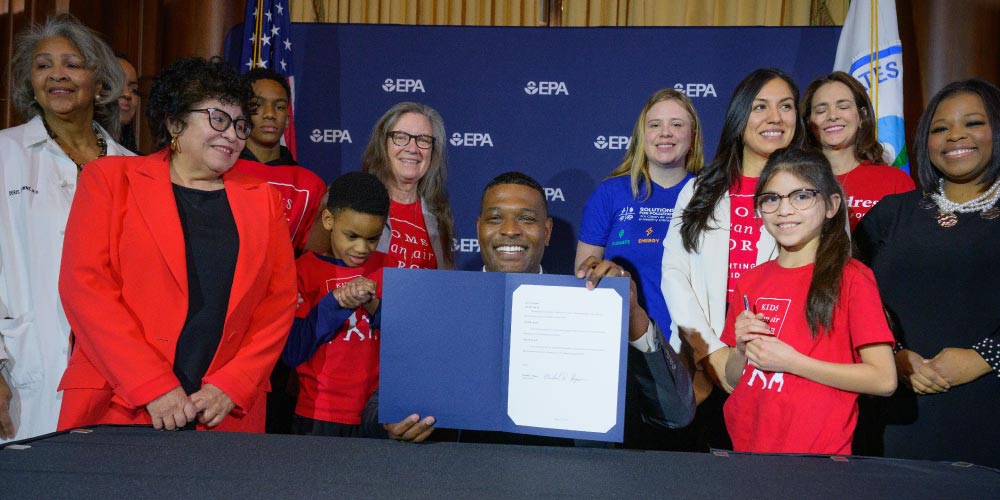
Soot is deadly, and the facts about airborne soot exposure are alarming:
Moreover, soot’s disproportionate harms are real. People of color are consistently exposed to higher levels of soot and particle pollution from sources like power plants, industrial facilities, and heavily-trafficked roads. They are more than six times more likely to visit the emergency room for asthma-related issues, and Black children are more than seven times more likely to die from asthma than White children.
Recently, the Biden-Harris administration finalized new protections against deadly soot pollution, which will cut annual soot pollution limits by 25 percent.
To help win these protections, LCV mobilized more than 47,000 LCV members who wrote to the Biden-Harris administration to demand action to limit soot pollution and clean up the air we breathe. In addition, LCV participated in more than 80 meetings with members of Congress, and testified during Environmental Protection Agency hearings.
We overcame fierce opposition from corporate polluters, proving — once again — just how powerful our movement is when we join together to demand a better future for people and our planet.
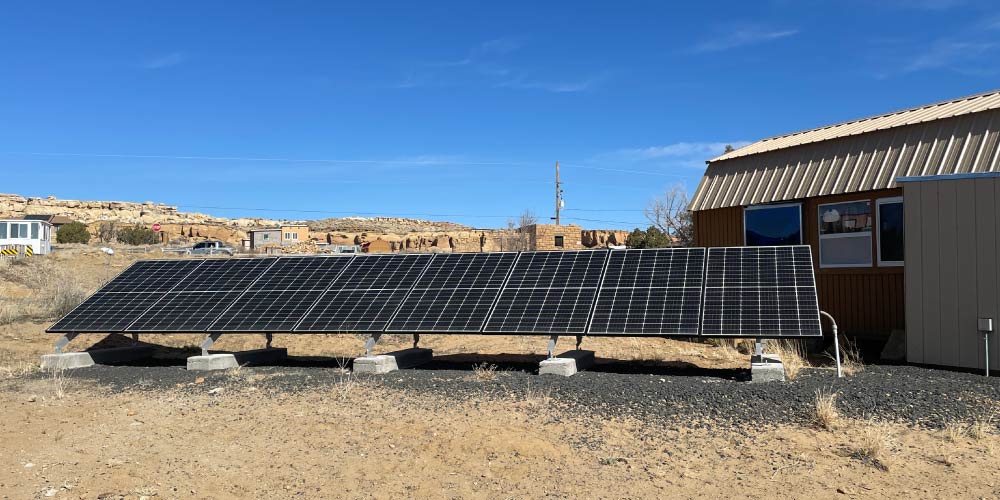
There are currently more than 16,000 Tribal households without electricity in the U.S. — but that’s about to change thanks to federal investments focused on electrifying these homes using zero-emissions electricity.
The Inflation Reduction Act (IRA) includes $145.5 million to help Tribal communities transition to clean, zero-emission electric energy systems, and $72 million of that investment was just released by the Office of Indian Affairs as part of its Tribal Electrification Program. This program is a critical step toward the goal of electrifying all homes in the U.S., and advances the Biden-Harris administration’s work to address climate change by reaching carbon pollution-free electricity by 2035. Specifically, these funds may be used to:
This program also advances the Biden-Harris administration’s Justice40 Initiative, which specifies that 40 percent of the benefits of certain federal clean energy investments flow to communities that have been marginalized by underinvestment and overburdened by pollution, including federally recognized Tribal Nations.
LCV was instrumental in passing the IRA, the source of funding for this program. We worked for well over a decade to press elected leaders to take bold and equitable climate action, building the political power inside Washington D.C. and in communities nationwide that ultimately led to winning the federal clean energy investments.
– Senator Cory Booker, in conversation with Vice President Kamala Harris during LCV’s annual Capital Dinner.
The Best Thing You Can Do Right Now
In addition to mobilizing in support of environmental protections and climate action, it’s also important to thank elected officials when they do the right thing. Take a moment to thank the Biden-Harris administration for its important new rule limiting soot pollution — and urge them to finalize even more regulations that protect public health and the air we breathe.
Send Email